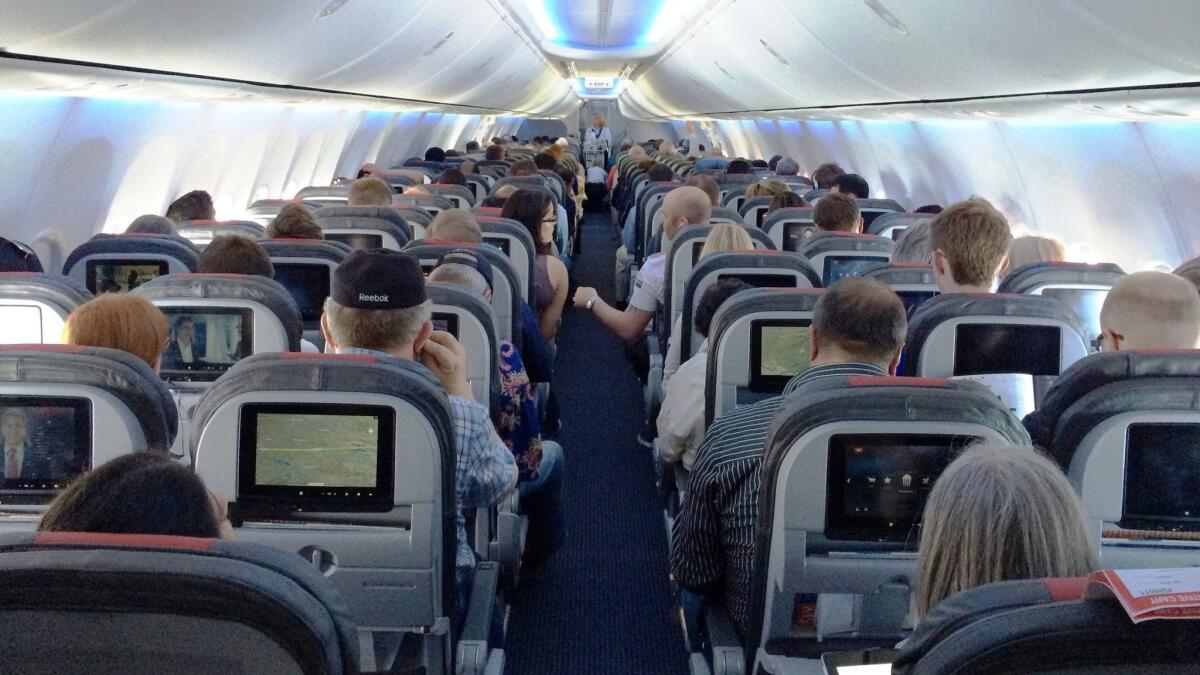Basic economy tickets may not be a great deal on some routes

- Share via
Delta, American and United airlines, three of the world’s the biggest carriers, all launched a bare-bones fare called “basic economy” in the past few years to better compete with ultra low-cost carriers such as Spirit and Frontier Airlines.
A study by Hipmunk, a travel comparison site, found that fliers who buy basic economy fares save an average of about $35 per one-way route over regular coach fares.
That savings is not much considering that fliers who buy basic economy fares must still pay $25 to check a bag, they can’t change flights or select their seats or upgrade to a roomier seat. On American and United, basic economy passengers can’t even bring a carry-on bag unless it fits under the seat.
But the Hipmunk analysis of booking data over six months found that the savings for buying a basic economy fare varies widely depending on the route. On some flights, a bare-bones basic economy fare is actually more expensive than a regular coach seat, which includes the ability to change seats and bring a carry-on bag.
The savings vary because American, Delta and United adjust the prices to be extra cheap on those routes where they have direct competition with low-cost rivals.
For example, a passenger who buys a basic economy fare from Newark Liberty International Airport to Los Angeles International Airport can save up to $131 by booking a basic economy fare over a regular coach seat, the study found.
But on routes where the big three carriers have less competition, basic economy fares offer no savings at all.
On a flight from San Francisco to Minneapolis-St. Paul International Airport, the basic economy fare is $3.49 more expensive than a regular coach fare. On a flight from Denver International Airport to McCarran International Airport in Las Vegas, a basic economy seat is $3.31 more expensive than a regular coach seat, the study said.
To read more about the travel and tourism industries, follow @hugomartin on Twitter.
More to Read
Inside the business of entertainment
The Wide Shot brings you news, analysis and insights on everything from streaming wars to production — and what it all means for the future.
You may occasionally receive promotional content from the Los Angeles Times.











